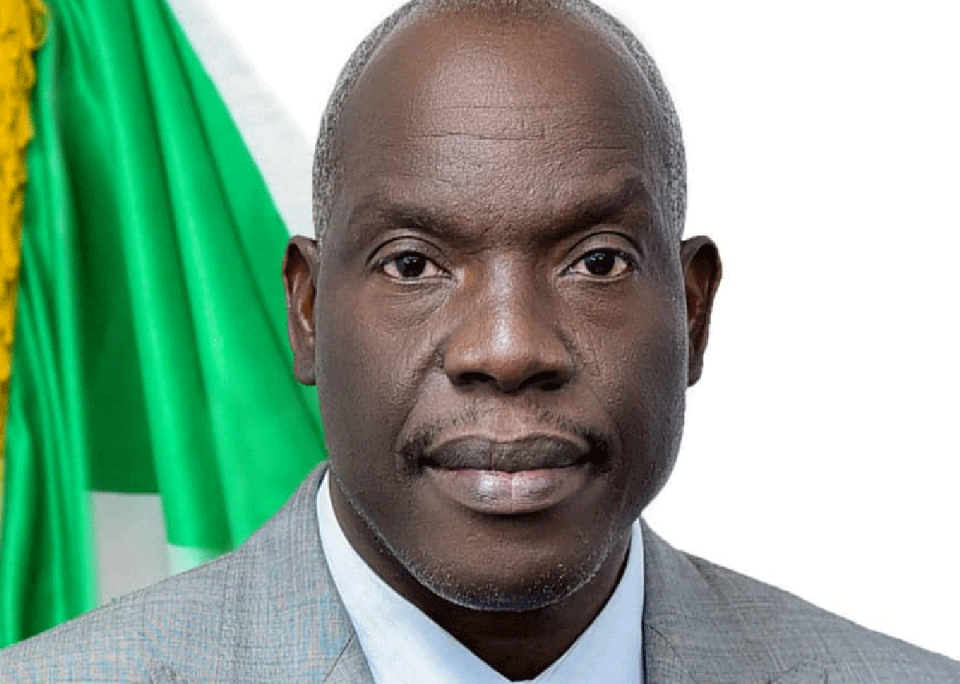NUPRC harps on equitable, sustainable energy mix for energy security
Yusuf Yunus in Houston, Texas
The Nigerian Upstream Petroleum Regulatory Commission (NUPRC) says energy transition discourse should revolve around implementation of a fair, equitable and sustainable energy mix that entrenches principles of inclusiveness and guarantees energy security.
Mr Gbenga Komolafe, the Commission Chief Executive, said this while speaking on the topic, “Energy Transition and Nigerian Upstream Oil and Gas Landscape: The Journey, Challenges & Way Forward” at the ongoing 2023 Offshore Technology Conference, in Houston, Texas, USA.
Komolafe said that this became important as the world looks at the future offshore energy and global transition to renewable and sustainable energy.
He noted that the discourse should consider the right of nations to harness their energy resources for their development goals, attain the right energy mix in a multiple energy pathway and sustainable energy supply.
“Nigeria has declared gas at its pathway to the energy transition and government has designed a programme that ensures that gas actually plays a role to lift the nation out of its challenges to drive industrial development,” he said.
He noted that as a nation, Nigeria boasts of 36.966 billion barrels of oil reserves and 208.83 trillion cubic feet of natural gas reserves, with a daily production of over 1.5 million barrels of oil and 7.5 billion standard cubic feet of gas, in terms of oil reserves.
“Nigeria is ranked 2nd in Africa, 8th in OPEC and 11th in the world. On the other hand, it ranks 1st in Africa, 6th in OPEC and 15th in the world in terms of crude oil production,” he said.
According to him, Nigeria is indeed a nation where needs meet opportunity.
“In addition to the four catalogued hydrocarbon potentials, Nigeria is blessed with potential for blue energy, solar, wind, biomass as well as other sources of renewable energy to leverage the right mix in the energy transition regime.
“It is also on course in its transition pathway to carbon neutrality by 2060.
“Given the abundance of gas in the nation, 2021 to 2030 was declared the Decade of Gas; coming on the back of 2020 which was our ‘Year of Gas’,” he said.
According to him, at the heart of this programme is the country’s vision to drive infrastructure and industrial development to prosper the citizens and make life more meaningful to all.
“Natural gas ticks all the boxes as the vehicle to help government achieve this aspiration which is why we embraced the resource to help turn around the economy.
‘’The work done so far has aggregated the gas demand and supply views, infrastructure requirements and the suitable pricing framework which will serve as the enabler for unlocking the investments for the required infrastructure that will drive the convergence of demand and supply.
“That work reveals that gas demand grew at an average of 3.3% p.a. between 2010 and 2020,” he added.
Komolafe said this was driven largely by growth in domestic demand enabled by an improvement in Domestic Supply Obligation fulfilment to 33 per cent in 2020, compared to 22 per cent in 2010.
“Between 2020 and 2030, demand is expected to grow at a compound annual growth rate of 16.6% p.a., driven by major projects such as the Nigeria Liquefied Natural Gas (NLNG) Train 7.
“ln the best case scenario, and Nigeria/Morocco pipeline, NLNG Train 7 and Ajaokuta-Kaduna-Kano (AKK) pipeline, in the high case scenario,” he said.
He said that a comprehensive analysis showed that gas demand in Nigeria could grow to 22.5 billion cubic feet per day by 2030 compared to 4.9 billion cubic feet per day in 2020.
“Domestic consumption could account for 60% of total demand by 2030 compared to 30% in 2020.
“In just a decade, the demand landscape could change exponentially, especially if the power sector challenges are resolved.
‘’However, on the supply side, it is projected that onshore Non-Associated Gas will account for 47% of total gas supply by 2030.
“The import of this is to showcase opportunities in gas development in the Nigerian upstream sector, ‘’ he noted.
He said that government was left with no choice but to reject the notion of a single pathway to net-zero, preferring instead the concept of ‘just’ energy transition which takes into cognisance.
He said that the multiple pathways to energy transition should and must exist to ensure that no country is left behind in the process of achieving net-zero by 2050.
“Accordingly, government then declared natural gas as our transition fuel.
“Unfolding event has equally shown that natural gas is our destination fuel, with a projection that gas will form a significant part of energy mix for Nigeria by year 2030 and beyond.
The conference has as its theme: ”Energy Transition in Africa: The Journey, Challenges and the Way Forward”.
The event was attended by prospective investors, investors and other stakeholders in the Nigerian oil and gas industry.




